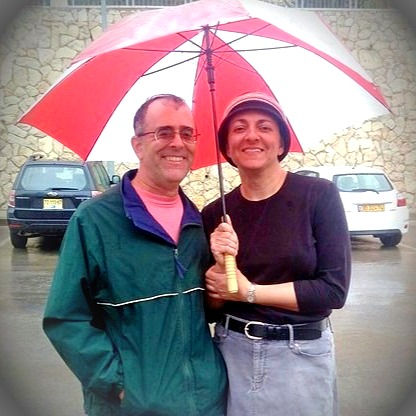WEATHER: Being Proactive In A Coronavirus Winter
- Dr. Barry Lynn
- Mar 2, 2020
- 3 min read
![Illustration: US Airmen assist one another with personal protective equipment (U.S. Air Force photo by Senior Airman Cody R. Miller)[Public Domain]](https://static.wixstatic.com/media/09570e_2078c6fd1f3e4ca6bb4a8e69ef9a3e07~mv2.jpg/v1/fill/w_725,h_410,al_c,q_80,enc_avif,quality_auto/09570e_2078c6fd1f3e4ca6bb4a8e69ef9a3e07~mv2.jpg)
Illustration: US Airmen assist one another with personal protective equipment (U.S. Air Force photo by Senior Airman Cody R. Miller)[Public Domain]
What do you do when your weatherman has ‘writers block’? Really, how many times can I write that it is going to rain, but that the main area of cold air will miss us to the north or to the east?
I suppose the answer is at least one more time.
It has been a really interesting winter, once it got going in late December. It started with a series of very heavy rainstorms, and we've now surpassed the average amount for the year. Moreover, additional rain (with possible snow on the Hermon) is expected at the end of this week, and then at the end of the following week. Both rain events are associated with winter-type storms, rather than the red-sea troughs of spring.
Yet, it snowed only briefly outside the higher elevations of the Golan and the Hermon.
In a year of continuously strongly positive North Atlantic (NAO) and Arctic Oscillations (AO), one might have expected a snowstorm or two. A positive NAO means that a ridge of warm air is often present over western Europe which is often associated with a trough of cold air over the eastern Mediterranean. These troughs of cold air help to spin up winter storms. A positive AO means that there is plenty of cold air if the atmosphere circulation should align to amplify the trough. The cold air would normally arrive via Siberia passing over Turkey before settling in over our area. One extreme example of this was the very heavy snowstorm of December 2013.
However, it didn't happen, and the question is what was missing? It is a strange question to ask because this year was marked by a number of "short-waves" (storms) moving around the ridge of high pressure, and even often superimposed on it. Since these traveled over quite a distance and arrived from the west (over the sea), we were blessed with plentiful rain.
This would be in contrast to the ridge building to our west and stretching far into northern Europe, while cold air flows southward from Siberia (i.e., the storm arrives more directly). Precipitation might be heavier than our average storm this winter but less frequent. It would be an interesting research question to understand what was missing, so to speak, in the global circulation that inhibited deepening of troughs in the eastern Mediterranean.
Less theoretical, is the worry about COVID-19, the worldwide epidemic coronavirus. There are at least two reasons that this virus, as well as SARS and MERS, originated in China. Firstly, many Chinese eat a variety of foods and unusual foods because they believe that these foods have special medicinal benefits, and secondly, they are eaten fresh (uncooked) to preserve their potency. Unfortunately, there are many viruses (old and new) that live robustly in bats, which then bite and infect the animals that are then eaten. The food can then become contaminated with viruses that are quite dangerous to human health. Hence, food becomes a potential disease vector.
Moreover, the Chinese culture discourages individuality and criticism, which is especially bad under the current government. Cultural norms can affect public safety. Had this coronavirus been dealt with earlier, instead of only after it became an epidemic, quite possibly countless lives could have been saved — not to mention the disruption to the world economies.
On our side of the world, our government has been proactive in preventing the spread of the virus. We can only hope that we will have a new government soon that will also be proactive in fixing our problems with hospital overcrowding, lack of roads and mass transit, and an educational system that pays its teachers far too little and educates its students to be knowledgeable but not wise children.
And you too can be proactive by remembering to wash your hands with soap and water!

Dr. Lynn is a lecturer at The Hebrew University of Jerusalem, Earth Sciences Department. He is also CEO of Weather It Is, LTD, a company that specializes in reducing weather risk. Click here to read more of this writer’s work in The Jerusalem Herald.



































Comments